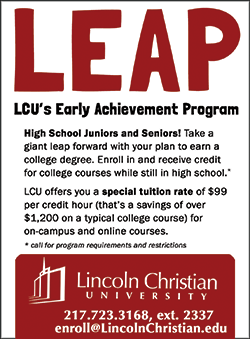|
 Obama praised Castro for openly discussing their differences but
he said a "full flowering" of the relationship would happen only
with progress on the issue of rights. Obama praised Castro for openly discussing their differences but
he said a "full flowering" of the relationship would happen only
with progress on the issue of rights.
"In the absence of that, I think it will continue to be a very
powerful irritant," Obama said in a joint news conference with
Castro that began with jokes but was tense at times.
"America believes in democracy. We believe that freedom of speech
and freedom of assembly and freedom of religion are not just
American values but are universal values," he said.
Both men's remarks were broadcast live on Cuban state television
from Cuba's Palace of the Revolution in a room draped with the Stars
and Stripes and the Cuban flag.
Castro countered that no country meets all international rights but
appeared uncomfortable as he made the rare step of taking questions
from journalists in a country where the media is state controlled.

Obama, the first U.S. president to visit Cuba in 88 years, agreed in
2014 to improve relations with the former Cold War foe but he is
under pressure at home to push Castro's government to allow
political dissent and to further open its Soviet-style economy.
He said the two sides would hold talks on human rights in Havana
later this year.
Opponents say Obama has given away too much as he improves ties,
with too little from Castro in return, although the leading
Republican candidate for the Nov. 8 presidential election, Donald
Trump, said on Monday he would likely continue to normalize ties
with Cuba if elected.
Castro, an army general who became president when his ailing older
brother Fidel retired in 2008, had never before taken questions from
foreign reporters on live Cuban television and was clearly irritated
when asked about political prisoners in Cuba, demanding the reporter
produce a list of those in jail.
"Tell me now. What political prisoners? Give me a name, or the
names," Castro said. "And if there are these political prisoners
they will be free before nightfall."
Cuba says it has no political prisoners and that the dozens listed
by dissident groups are instead common criminals.
Castro said Cuba has a strong record on rights such as health,
access to education and women's equality. His government criticizes
the United States on racism, police violence and the use of torture
at the Guantanamo Bay naval base in Cuba.
Ben Rhodes, a senior Obama aide, later insisted that Cuba has
political prisoners and said the U.S. government had shared lists of
them with Cuba. He said Cuba has shifted from long prisons terms to
short-term detentions of political opponents.
Later in the evening, Castro sat between Obama and First Lady
Michelle Obama for a dinner of rum flavored soup and pork, at a
table that also included the leaders' top advisers.
'EMBARGO'S GOING TO END'
Obama's ease with reporters' questions contrasted with Castro's
manner. The tension was palpable as Castro declined to call on a
slew of Cuban journalists who yearned for the rare chance to ask him
questions.
Fumbling with a headset providing translation, the 84-year-old
leader scolded reporters when he was asked again about rights,
saying he agreed to only take one question.
Obama playfully encouraged him to address a second but Castro seemed
reluctant as he obliged.
[to top of second column] |

"How many countries comply with all 61 human rights? Do you know? I
do. None. None," Castro said.
In another awkward moment, as the news conference ended, Castro
lifted Obama's arm in the air as if to form a victory salute. Obama
resisted, letting his hand hang limp rather than form a fist.
As part of the diplomatic breakthrough in 2014, Cuba released 53
prisoners that the U.S. government considered political prisoners.
But the dissident Cuban Commission of Human Rights and National
Reconciliation says 79 are still behind bars, among about 40 held
for peaceful political protest.
"This list is here if they want to see it," commission leader
Elizardo Sanchez said on Monday.
His list also includes armed anti-government militants, convicted
hijackers, army deserters and spies, but Sanchez said they are
political because they were denied due process.
Castro offered Cuba's recipe for better relations, saying the United
States needs to lift its 54-year-old trade embargo on the island and
hand back the Guantanamo Bay base to Cuba.
Obama did not respond to the demand on Guantanamo Bay but said he
was optimistic about the elimination of sanctions against Cuba.
"The embargoís going to end. When, I canít be entirely sure," Obama
said.
Obama efforts to encourage Congress to rescind the embargo has been
rejected by the Republican leadership. Thwarted, Obama has instead
used executive authority to loosen restrictions on trade and travel.

Obama said direct flights from the United States would start this
year. He said regular tourism to Cuba could happen "very soon," in
comments to U.S. network ABC.
A clutch of deals timed to coincide with the visit appeared to show
the strategy was bearing commercial fruit, notably U.S. cruise
company Carnival's announcement on Monday that it would sail the
first ship from the United States to Cuba in more than 50 years, in
a deal that will bring in thousands of U.S. tourists at a time.
About a dozen major U.S. brands have stuck deals or are in talks
with Cuba. Ahead of the meeting with Castro, Obama said Google would
provide more Wi-Fi and broadband access on the island. Google said
later its efforts were in the "early stages."
(Additional reporting by Jeff Mason and Daniel Trotta; Editing by
Kieran Murray and Alistair Bell)
[© 2016 Thomson Reuters. All rights
reserved.]
Copyright 2016 Reuters. All rights reserved. This material may not be published,
broadcast, rewritten or redistributed. |